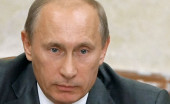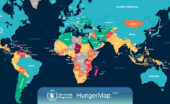Molly Minturn - My family is heartbroken to share that my father died in surgery on Monday, Feb. 10. It…
Wednesday Night #1806
Written by Diana Thebaud Nicholson // October 12, 2016 // Wednesday Nights // Comments Off on Wednesday Night #1806
The first WN after Thanksgiving is always special and this was no exception, with Tony Deutsch back in his usual seat after 3 1/2 months away; Ron Meisels after several weeks absence touring the Iberian Peninsula (and sampling excellent Port) and Peter Perkins whom we had not seen since his post-Brexit talk at the University Club in early July.
Much of the talk focused on the upcoming election.
Peter showed the two maps from Five thirty-eight, Election Update: Women Are Defeating Donald Trump
“… it seems fair to say that, if Trump loses the election, it will be because women voted against him. I took a look at how men and women split their votes four years ago, according to polls conducted in November 2012. On average, Mitt Romney led President Obama by 7 percentage points among men, about the same as Trump’s 5-point lead among men now. But Romney held his own among women, losing them by 8 points, whereas they’re going against Trump by 15 points.” The maps -and their analysis- have caused an Internet firestorm.
P R O L O G U E
A staggering number of opinion and analysis pieces regarding Sunday’s Clinton-Trump debate predominate on North American and some international media sites. However, there are major developments in other parts of the world. We will, as always, try to balance both.
First, some good news: Economists Oliver Hart and Bengt Holmström won a Nobel Prize for their work in contract theory
The irrepressible Tony Deutsch explains the importance of their work:
Suppose you own an apartment building and hire me to manage it. Your interest and expectation is that I shall undertake great efforts to find agreeable and solvent tenants, and keep operating costs down by devoting much time and energy to find low-cost suppliers for the minimal services necessary to keep the building going at the standard that will attract and keep desirable tenants. My interest is to maximize the money I get for the managerial activity, and keep the demand on my time and efforts at a level I find comfortable . We are to write a contract whereby you secure my services. What shall be in the contract as to my duties and compensation? Should we at some time disagree on the interpretation of our contract, how shall our dispute be adjudicated?
Those type of questions were investigated by the two new Nobel laureates. The questions are alluded to by Adam Smith, but usable guidance on how to resolve such issues were missing, until these two chaps went to work.
Can we apply their work to the various free trade deals currently the subject of so much controversy – especially the TPP? And perhaps to other aspects of globalization?
This Was the Week the World Got Really Anxious About Globalization’s Future
(Bloomberg) Weak global trade, fears that the U.K. is marching towards a hard Brexit, and polls indicating that the U.S. election remains a tighter call than markets are pricing in have led a bevy of analysts to redouble their warnings that a backlash over globalization is poised to roil global financial markets—with profound consequences for the real economy and investment strategies.
From the economists and politicians at the annual IMF meeting in Washington to strategists on Wall Street trying to advise clients, everyone seems to be pondering a future in which cooperation and global trade may look much different than they do now.
The announcement that the Nobel Peace Prize had been awarded to Colombian President Juan Manuel Santos was a bit of a surprise, given that the nation had rejected his peace plan in the referendum held the previous Sunday. However, the chairman of the Norwegian Nobel Committee defended the choice saying that since there is so little actual peace in the world, “we have to award those who are trying.” There is a certain logic to that, but we still believe that Syria’s White Helmets would have been a splendid choice.
Last week we deplored the situation in Syria, particularly Aleppo. Our tune has not changed. Condemnation of Russia’s intervention has done nothing to discourage Mr. Putin. On the contrary, according to various experts cited by the BBC’s Jonathan Marcus, Moscow’s bombing campaign has paid off for Putin, and most recently, Russian authorities have announced the establishment of a permanent naval base on the site of an existing facility it leases at the Syrian port of Tartus.
In Yemen, the Arab coalition, assembled by Saudi Arabia looks more and more like the Russian murderous bullies in Syria, but the situation is further complicated by the relationship between the U.S. and Saudis. In fact, the White House issued a statement saying it had begun an “immediate review” of its support for Saudi Arabia in Yemen. To be followed closely.
Finally (not that anything in the Middle East is ever ‘final’), Iraqi preparations for the assault on Mosul are being complicated by Turkey whose parliament voted last week to extend the deployment of an estimated 2,000 troops across northern Iraq by a year to combat “terrorist organizations” – a wording broad enough to refer to Kurdish militants as well as Islamic State. Iraq condemned the vote, and Prime Minister Haider al-Abadi warned Turkey risked triggering a regional war. His government has requested an emergency United Nations Security Council meeting to discuss the issue.
Before addressing the U.S. political scene, we extend warmest wishes for success to occasional Wednesday Nighter and Jeanne Sauvé Fellow, Guillaume Lavoie, who has announced that he is running for the leadership of Projet Montréal and then for Mayor of Montreal, positioning himself as a sort of anti-Coderre. Whereas the mayor’s charisma, back-slapping charm and media savvy are crucial to his political arsenal, Lavoie’s background is steeped in the study of governance.
Everyone has surely read or listened to far more commentary about the latest presidential debate than you ever wanted to. Among all of the opinions, presents one of the most depressing ones in Birth of the Trump News Network
“Trump did well enough to keep his campaign from blowing apart, but he didn’t do nearly well enough to get it back on track. During the next four weeks, it will help voters make sense of his conduct if they understand that Trump, a former reality television star, is no longer chiefly interested in running for president. He’s auditioning for his next entertainment gig. On Sunday night, he was thinking of his brand rather than his campaign, his future audience share rather than his electoral vote count. The fact that he’s ruined the Republican Party in the process didn’t seem to bother him at all.”
Meanwhile, Quartz suggests that the debate format simply isn’t designed for the level of deceit and ugliness Trump brings to the US presidential race. And neither, we’re seeing, is American democracy. The system presumes that though candidates differ in their views, they ultimately respect the electoral process and the voters they aim to represent. Trump left no such impression at the debate, defiling yet another institution that is meant to help Americans maintain civil discourse despite their differences.
Rather than dwelling on Sunday’s debate (UGH!), enjoy the political history presented in The State of the Presidential Debate — How should candidates—and voters—argue about politics?
Many thanks to Alain Labelle of RCI for pointing us to “American Nations: A History of the Eleven Rival Regional Cultures in North America,” by award-winning author Colin Woodward in which he identifies 11 distinct cultures that have historically divided the US. Published in 2011, this insightful thesis should be a fascinating read – check out this synopsis from Business Insider.
More good reading, this Guardian piece by Cleo Paskal, “2016 is year of the ‘Deplorables’”. Her conclusion: “This disconnect, and even mutual distrust, between some political parties/establishment media and large sections of the populace is becoming a complicating, and sometimes decisive, factor in modern democracies. It will have widespread implications far beyond the November elections. And far beyond politics. More and more people don’t trust the “old faithful” sources anymore. They are more willing to believe what their friend posts on Facebook than something in the Times of India. And they may be right. Or not. And that’s the problem. It’s getting harder to tell anymore.”
Cleo followed up by sending along this learned (and somewhat turgid) paper Political Diversity in Social and Personality Psychology which concludes that self-identified liberals are much more intolerant of the views of their conservative colleagues than we would like to think.
So maybe what we need to do is ensure that all those liberals become fully bilingual as this delightful essay would suggest?
The World Looks Different When You’re Speaking a Second Language The only problem is that, as far as we can ascertain, intolerance can exist in any number of parallel languages.
This gem came across our screen recently. Don’t Text While Parenting With all of the excellent studies on parenting, and the need to explore many more aspects, our minds boggle.
“Dr. Jenny Radesky, a fellow in developmental-and-behavioral pediatrics at Boston Medical Center, specializes in counseling parents about developmental and behavioral issues with their children. So she was naturally curious about how the ubiquity of smartphones, and their distracting allure, might affect the quality of time that parents and their children spent together.”
We cannot imagine that anyone was surprised to discover that there is an adverse effect on the kids when parents ignore them in favor of the smartphone, however it turns out that the doctor sees a need to draw up guidelines/rules for smartphone use in front of the kids. In the meantime, setting aside devices during specific times, such as meal, story and bed times, can help to minimize any potentially distracting effects that smartphones have on parent-child interactions. Using the phone, says Swanson, “is not recommended at the dinner table — a time that we think is valuable to fostering cohesion.”
We would hate to conclude with those mundane, self-evident observations. Instead, we offer the inspiring tale of EARTH University, a former banana plantation in Costa Rica that is now a school — but the curriculum still involves growing fruit. EARTH University, founded in 1992, trains students from developing nations in responsible, sustainable agriculture. Graduates then apply their knowledge in their own countries, hoping to improve both the economy and the environment. Currently, 43 countries are represented; about 110 students are admitted (from 1,600 applications) each year.
“What we attempt to discover there is their interest to go back to their countries, because we are about forming leaders and individuals that really overcome barriers.”


